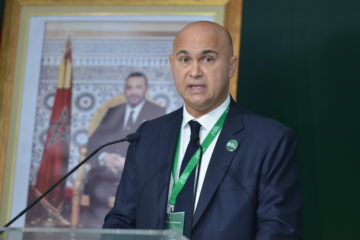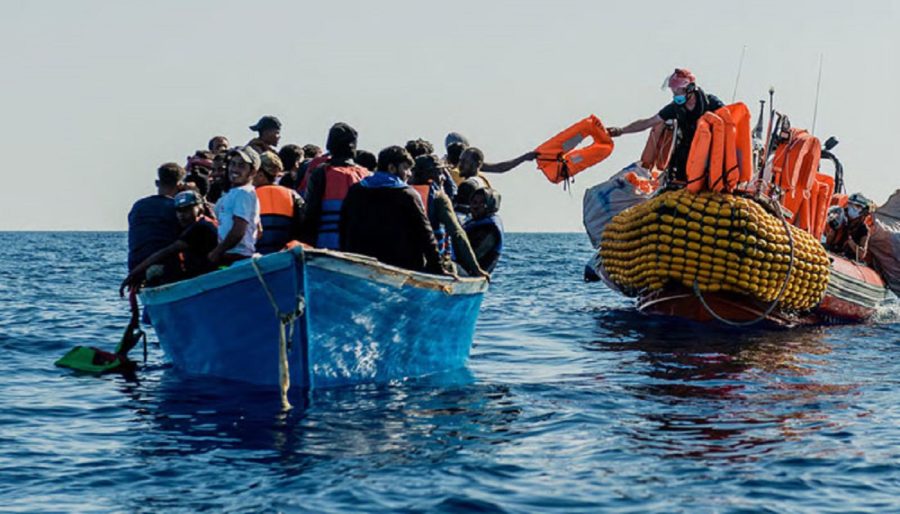 More than 400 people from all over the world took part in the fourth edition of the Africa Security Forum held in Rabat December 1-3 under the theme “the impact of climate change on security in Africa”.
More than 400 people from all over the world took part in the fourth edition of the Africa Security Forum held in Rabat December 1-3 under the theme “the impact of climate change on security in Africa”.
The forum, one of the most important meetings of the year on the continent, focused debates on the solutions to be implemented to counter the impact of climate change, from three perspectives: “Food security and water management”, “Population growth and agricultural development” and “Anticipating the solutions of tomorrow”.
“The effects of climate change on the global political landscape are destabilizing the continent’s vulnerable regions and fostering tensions with their share of security problems and conflict,” said in opening remarks Driss Benomar, President of the Center for Research and Geostrategic Studies (Atlantis), co-organizer of the event.
Calling for thorough reflection on a new model of African cooperation to address security and environmental challenges facing the continent, Driss Benomar pointed out that the current rate of climate change, especially in terms of sea-level rise due to melting glaciers, extreme variability in rainfall, and increased frequency of storms, is a new situation that the continent needs to prepare for, he warned.
The majority of participants called for the implementation of rapid solutions to relieve the millions of people already impacted by climate change on the continent.
Indeed, climate change impacts wildlife, flora and human societies. This is even more pronounced in Africa where these factors, combined with the scarcity of water resources and demographic pressure, provide fertile ground for the reinforcement of migratory flows, conflicts over resources between communities, particularly pastoralists and farmers, and even between nations, aggravating the problem of food security. This situation is likely to get worse in the coming years if nothing is done at the global level.
Thus, while the number of people suffering from undernourishment in Africa is estimated to date at 240 million, the rise in temperature between 1.2 and 1.9 degrees Celsius, due to climate deregulation, could blow up the number of undernourished Africans. These would increase by 25% in Central Africa, 50% in East Africa, 85% in Southern Africa and 95% in West Africa.
With no less than 2 billion people by 2050, Africa is more than ever at the center of all the concerns regarding the fight against the impacts of climate change, especially since it represents one of the most vulnerable continents in this regard.
As a result, about 2% of the continent’s GDP is spent on climate change. A situation that will handicap the African continent in its development.
In the case of Morocco, the drop in rainfall levels would be between 20 and 40% by 2050, with recurrent droughts, contributing to global warming, worsening water scarcity, reducing farm output and increasing rural exodus. The level of dams that provide electricity will also drop because of lack of water.
Moreover, according to several studies, Africa will need $40 billion investment annually by 2030 to successfully mitigate the drastic effects of climate change.
The objective of the forum organizers is to mobilize the African intelligentsia around the issue and prompt them to make practical recommendations that will serve as a basis for the solutions to be implemented by African states.
The Africa Security Forum is co-organized by Atlantis Research and Geostrategic Studies Center and the International Forum for Security Technologies (FITS).


